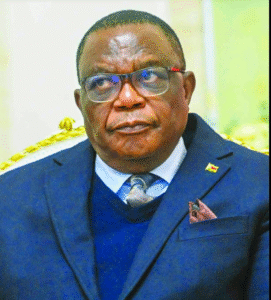MNANGAGWA’S CONSTITUTIONAL VIOLATIONS DEEPEN ZIMBABWE’S GOVERNANCE CRISIS
In the heart of Zimbabwe, a disturbing pattern of constitutional disregard is unfolding, casting a long shadow over democratic governance and the rule of law. Since rising to power, President Emmerson Mnangagwa has repeatedly acted in ways that not only raise serious questions about the integrity of his office, but also threaten the very foundation of Zimbabwe’s constitutional democracy.
The first signs of this governance crisis were stark. One of the earliest constitutional missteps under Mnangagwa was the controversial appointment of General Phillip Valerio Sibanda as Commander of the Zimbabwe Defence Forces. Though this decision was later reversed under public and institutional pressure, it served as a preview of the administration’s willingness to sideline legal frameworks for political convenience.
The roots of these violations stretch back to the 2017 military coup that ousted long-time ruler Robert Mugabe. That coup not only reshaped Zimbabwe’s political trajectory but also resulted in what many believe was a tacit deal between Mnangagwa’s new administration and elements of the judiciary. This implicit understanding has cast a cloud of doubt over the judiciary’s independence and has, in effect, facilitated the erosion of legal and democratic safeguards.
One glaring constitutional breach involved the deliberate failure to allow former Vice-President Phelekezela Mphoko to serve as acting president during the transitional phase—a clear procedural violation. This act alone set a dangerous precedent and called into question the legitimacy of Mnangagwa’s assumption of power.
More recently, Mnangagwa’s inauguration after the disputed August 2023 general elections further entrenched doubts about his presidency’s legitimacy. These elections, widely condemned by local and international observers, failed to meet democratic standards, yet the administration proceeded with business as usual—undermining electoral credibility in the process.
Beyond these headline events, Mnangagwa’s government has continued to chip away at constitutional order through questionable appointments. The naming of provincial ministers whose legitimacy is under scrutiny, and the conspicuous failure to appoint a minister for State Security or Intelligence, illustrate a broader pattern of neglecting constitutional duties.
Even sporting bodies have not been spared from this culture of impunity. The Football Association of Zimbabwe (FAZ) has found itself entangled in controversy over its handling of internal elections—yet another indication of institutional decay under Mnangagwa’s watch. Meanwhile, the involvement of Justice Loice Matanda Moyo in politically sensitive cases has raised conflict-of-interest concerns, damaging public confidence in judicial impartiality.
The recent reappointment of General Sibanda to the ZANU PF politburo—despite constitutional prohibitions against partisan involvement by serving military officers—epitomizes the administration’s attitude towards legal boundaries. These actions are not isolated incidents; they form a clear and worrying trend of disregard for constitutional norms.
Each violation, each decision taken outside the legal framework, erodes the principles of accountability and transparency. Collectively, they pose a serious threat to Zimbabwe’s democratic future.
This pattern of governance exposes President Mnangagwa to potential impeachment. If opposition forces were to leverage these constitutional breaches and rally public and political support, the president could find himself facing a serious legitimacy crisis. The stakes are high in Zimbabwe’s already polarised political landscape.
In conclusion, Zimbabwe’s democracy is fraying at the edges. The constitutional violations under Mnangagwa’s administration are not just challenges to his leadership—they are warnings of a systemic governance breakdown. Whether the country can reclaim its democratic path depends on the strength of its institutions, the courage of its civil society, and the will of its people. The time to act in defence of constitutionalism is now—before the damage becomes irreversible.



